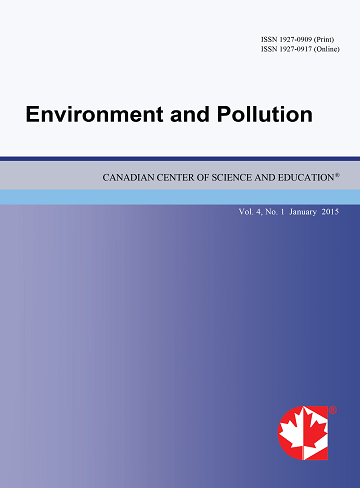Mining Activities and Associated Environmental Impacts in Arid Climates: A Literature Review
- Douglas Sims
- Peter Hooda
- Gavin Gillmore
Abstract
Mining operations have released measurable levels of geogenic trace metals (e.g. Cd, Cr, Pb), metalloids (e.g. As, Se), and anthropogenic chemicals (e.g. CN?, Hg) into surrounding sediments. Abandoned mining sites in hyperarid climates has not been the focus of much research compared to wet and temperate areas. Research has focused on historical mining sites in semiarid and wetter regions in the United States, south pacific and Europe. Those areas have obvious risks associated with them including aqueous phase mobilization as a result of abundant precipitation. However, many mining areas in the American Southwest and aboard are located in hyperarid regions and viewed as not having a potential for mobilization of contaminants. Seasonal storm events can mobilize sediments containing contaminates beyond a small, localized area and into the wider environment. Literature indicates that arid and hyperarid mining regions have not been studied as extensively as those in wetter climates.
- Full Text:
 PDF
PDF
- DOI:10.5539/ep.v2n4p22
Journal Metrics
Index
- Academic Journals Database
- Berkeley Library
- CAB Abstracts
- CAS (American Chemical Society)
- CNKI Scholar
- COPAC
- CrossRef
- DTU Library
- Elektronische Zeitschriftenbibliothek (EZB)
- EuroPub Database
- Excellence in Research for Australia (ERA)
- Genamics JournalSeek
- Google Scholar
- Harvard Library
- Infotrieve
- Jisc Library Hub Discover
- JournalGuide
- JournalTOCs
- LOCKSS
- Max Planck Institutes
- Mir@bel
- PKP Open Archives Harvester
- Pollution Abstracts
- Publons
- Pubmed journal list
- ROAD
- Scilit
- SHERPA/RoMEO
- Standard Periodical Directory
- Stanford Libraries
- UCR Library
- Ulrich's
- UniCat
- Universe Digital Library
- UoS Library
- WorldCat
- Zeitschriften Daten Bank (ZDB)
Contact
- Albert JohnEditorial Assistant
- ep@ccsenet.org
